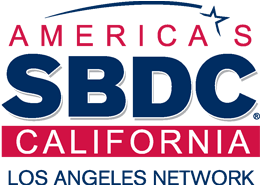Starting a new venture or ready to grow your existing business—what about financing? A traditional bank will likely require evidence of cash flow, collateral and credit upfront. Maybe you would like to consider more options though, check out these ten inventive methods, a few pros and cons as well as resources for financing your small business.
-
Friends and Family: Borrowing from friends or relatives is a practical financing option, especially for startups and could include low or no interest rates and often a much less rigorous contract. (+) Undoubtedly, the best form of financing is a gift from friends or family. If not, issuing a percentage of equity in the business is also an option or drafting a formal promissory note to evidence the debt (later convertible into equity if desired.) (-) Personal relationships could be damaged, but keeping an open and frequent line of communication with friends or family is advisable.
-
Community Development Financial Institutions (CDFI): Traditional banks might refer you to a CDFI, lending smaller amounts (typically $50,000 or less) for different purposes like working capital, equipment, or supplies. (+) These loans can often have less stringent requirements and for established businesses it can be a generally simple application process with flexible pricing. (-) These loans can have higher upfront fees or interest rates as they may be riskier. Resources: VEDC, PCR, EDC-VC or see your local SBA Office for a list of Micro Lenders.
-
City and County Loan Programs: (+) Cities and counties both want to build attraction to their area(s) and create jobs, thus they may offer businesses lower interest loans to relocate or modernize, for special projects, or even for environmental purposes. Some cities also offer grants for beautification or salary subsidies. (-) Not all cities or counties offer incentives or even have loan programs. Resources: Local Workforce Investment Boards (WIB), City of Long Beach, City of Los Angeles, Ventura County (EDC-VC).
-
Nonprofit Agencies: A nonprofit agency such as the Jewish Free Loan Association (JFLA) can offer a developing business an interest-free loan up to $15,000 for five years. The JFLA requires two co-signers, a business plan, cash flow projections, ability to repay the loan as well as a demonstrated need. More on requirements click here.
-
Product Presales: You might consider instituting a policy of collecting 50% of the cost of the good as a deposit and collect the remaining 50% once the good is shipped, allowing you the flexibility to pay for inventory, materials, labor, manufacturing costs as well as other operating expenses, as appropriate. (+) Presales represent an interest free source of financing for inventory and/ or manufacturing costs as well as other operating costs once goods are delivered. (-) Many times, supporting such a purchasing policy may not be feasible for established businesses.
-
Factoring: Through factoring businesses can access financing through borrowing against their accounts receivables. (+) Helpful for businesses in a period of growth whereas it may seem risky for a traditional bank to lend, for businesses with limited credit history, businesses in volatile industries (e.g. garments), or businesses with few but quality clients (e.g. large retailers). (-) A business owner concedes control over their accounts receivables; obligated to pay factor advances first upon collection of A/Rs, any service fees and interest relating to the factor advances.
-
Crowdfunding: Crowdfunding can come in different forms including: issuing “lenders” equity, debt or a “reward.” (+) You can pre-fund your product, create a customer base and face easier investor relations with a potentially larger pool of funds. Sometimes, other organizations can help manage your crowdfunding campaign. (+/-) Often geared toward specific projects, industries, or cause-related activities, but not always. (-) If the transaction is debt related you could face a higher interest rate, if equity related you also risk losing a piece of your business and an element of transparency with regard to your business plan. Note: It is highly advisable to have any intellectual property well protected before engaging in any crowdfunding activities. Resources: (Reward) Kickstarter, Indiegogo, PeerBackers (Debt) SoMoLend, Funding Circle, (Equity), Grow VC, MicroVentures.
-
Credit Cards: The purpose of your loan should always dictate financing; short-term need and short-term financing vs. long-term need and long-term debt. (+) For short term seasonal needs, a credit card offers fast cash, convenience, and a financial cushion. (-) Credit cards will generally have higher interest rates than bank loans or lines of credit, making it more expensive to borrow. Note: Assure that your business source of income is used to pay the credit card down as soon as possible. Resources: Business credit card reviews and comparisons, NerdWallet, SBA determining your financing needs.
-
Online Lenders: Some companies are creating online marketplaces to connect small businesses with lenders offering loans from $5,000 to $150,000 in some cases. (+) Some of these lenders may have different scoring models than banks, focusing on cash flow rather than the credit score of the business owner, and have quicker processing times. (-) Typically, these loans are more expensive and may have very specific or shorter pay back periods. Resources: Smartbizloans.com, OnDeck, Biz2Credit.
-
Home Equity Line of Credit (HELOC): (+) If considering a loan against your home’s equity, it is highly advisable to apply for a direct business loan, supported by your equity versus directly borrowing against the equity in your home. It may be relatively easier to access capital using this method versus a traditional loan. (-) Most banks may suggest a home equity line first before a business loan because it is backed by your home’s equity. You are personally guaranteeing your home for this capital, so a bank can foreclose if the loan is not repaid.
Special Thanks to: Nathaniel Jemison for his content contribution to this article. Nathaniel is a Business Advisor at the SBDC hosted by El Camino College and Long Beach City College specializing in access to capital and loan packaging assistance.





